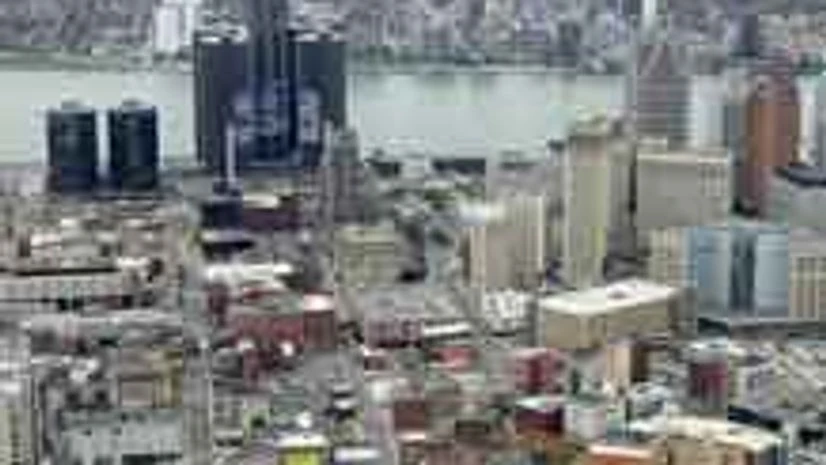US Bankruptcy Judge Steven Rhodes has scheduled a hearing for 10 am EST (1500 GMT) on Tuesday to announce his decision, which will be followed by the release of a written opinion.
Rhodes' ruling will begin a new chapter in the case that first arrived in federal court with Detroit's July 18 bankruptcy petition. If Rhodes rules Detroit is eligible for bankruptcy, which most experts expect, the city will begin working toward its next major move, the submission of a plan to readjust its more than $18 billion in debt.
No matter how Rhodes rules, the case could drag on through a possibly lengthy appeals process that could delay the city's plan to submit its plan of readjustment by the end of the month. The city's largest union has asked Rhodes to allow any appeal to proceed directly to the US 6th Circuit Court of Appeals, bypassing the US District Court in Detroit.
"There are bankruptcy judges who are known to sometimes take the easier way out and to try and get the people to resolve it rather than make the hard decisions," said attorney Chuck Tatelbaum, who has been involved in the financial restructuring of Harrisburg, Pennsylvania, and who has previously practiced in front of Rhodes.
"He's not one of those. He'll do what's right, but he's not afraid to take the time to make that hard decision that's then going to be reviewed under a microscope by an appellate court," said Tatelbaum, who is not involved in the Detroit case.
Detroit is burdened by $18.5 billion in debt as it struggles to provide even the most basic services to the city's 700,000 residents. About 40% of the city's streetlights do not work and about 78,000 abandoned buildings litter the city, whose population peaked at 1.8 million in 1950.
More From This Section
In order to meet federal eligibility requirements, Detroit must prove that it is insolvent, it was authorized to file for bankruptcy and that it negotiated with creditors in good faith or that negotiations were impractical.
AUCTIONING ARTWORKS?
City unions, retirees and pension funds objected in court to Detroit's filing, contending during a nine-day trial in November that Detroit Emergency Manager Kevyn Orr did not negotiate in good faith and drove the city into bankruptcy court instead. Orr, a former bankruptcy lawyer, was appointed in March by Michigan Governor Rick Snyder, a Republican.
Opponents also argue that Michigan's constitution protects pensions from being slashed and that the city has other assets it can sell to pay down its debts, including the works of the Detroit Institute of Arts. Orr has brought in auction house Christie's to place a value on some pieces in the museum's collection.
In June, Orr put forward an initial proposal on how Detroit should deal with its $18.5 billion in debt and liabilities that offered unsecured creditors only pennies on the dollar to settle their claims. Orr raised eyebrows by declaring that holders of most of Detroit's general obligation bonds would be treated as unsecured creditors who would be part of a group that would receive pro-rata shares of $2 billion in notes to settle their $11.5 billion in claims.
Detroit says about half its liabilities stem from retiree benefits, with $5.7 billion in liabilities relating to retiree healthcare and another $3.5 billion from pensions.
Likely cuts to retiree pensions and changes in healthcare benefits have been at the heart of the objections from the city's unions, pension funds and retirees. Orr drew pointed questions from Rhodes over possible cuts during his time on the witness stand in the eligibility trial last month.
"Everybody is hanging on the edge of the cliff waiting to see what the announcement is ... and to me it kind of seems like the train left the station," said Brendan Milewski, a 34-year-old retired Detroit firefighter who was paralyzed in 2010 while battling a fire. "The state and the EM have had a lot of time to steer the course and plot the direction they're going in."
In some respects the Detroit Institute of Arts has become symbolic of the costs of allowing Detroit to fall into bankruptcy. Last week, a group of the largest creditors asked Rhodes to order an independent valuation of the museum's 66,000-piece collection. One of the city's most prized cultural assets, the museum includes paintings by Vincent van Gogh and Henri Matisse, an original cast of Auguste Rodin's "The Thinker," and a fresco mural by Mexican artist Diego Rivera. Christie's has not yet issued its valuation of the museum's collection.
Bill Nowling, Orr's spokesman, said in an email last week that the city disagrees with the creditors' filing, but the move helps "illustrate the lengths they are willing to go to ensure they receive payment."

)
